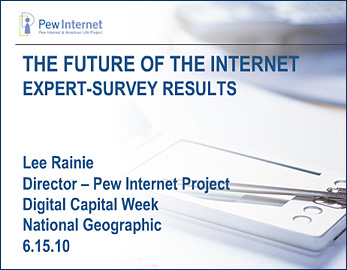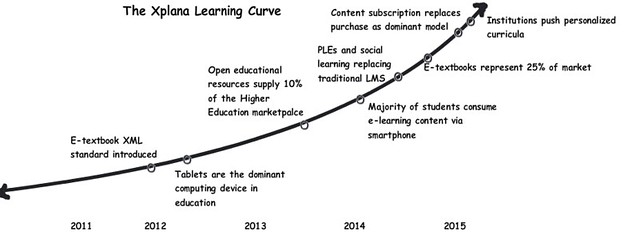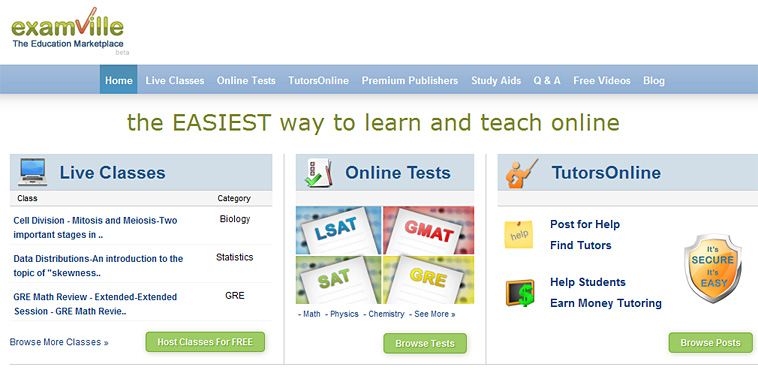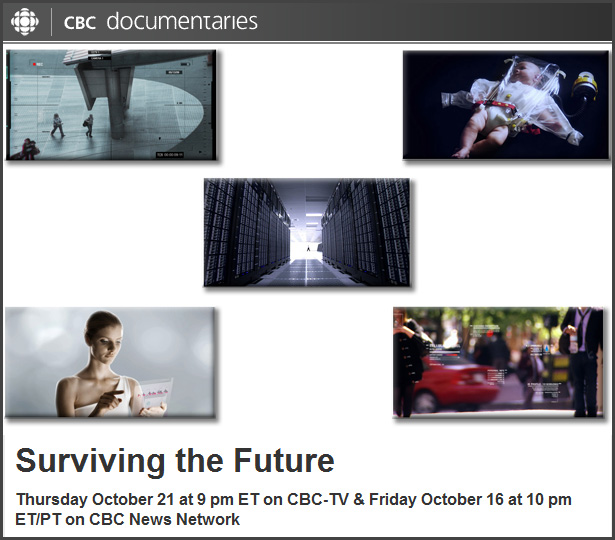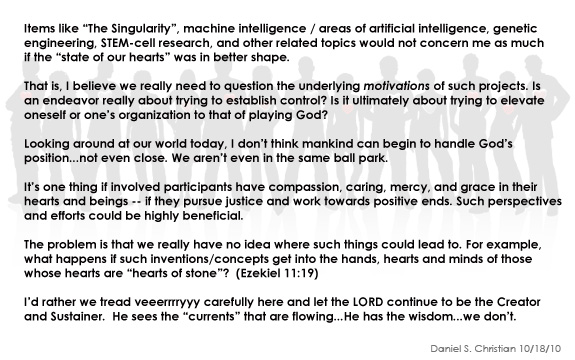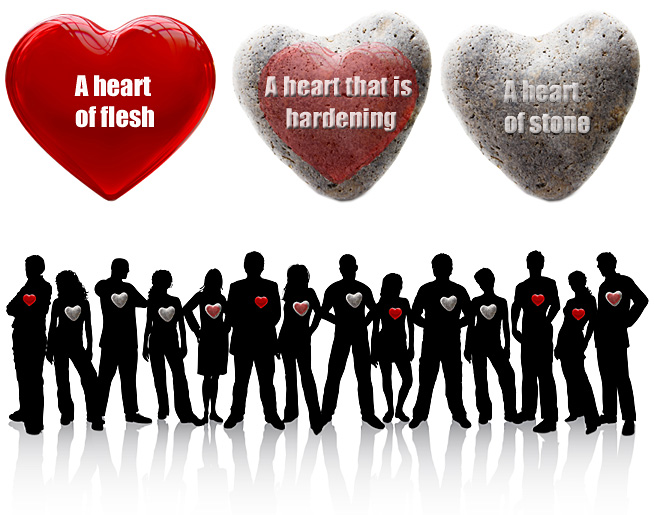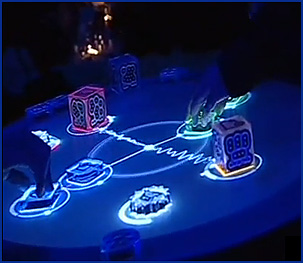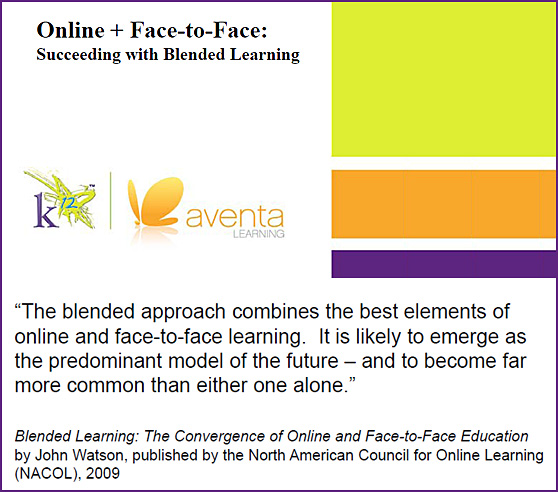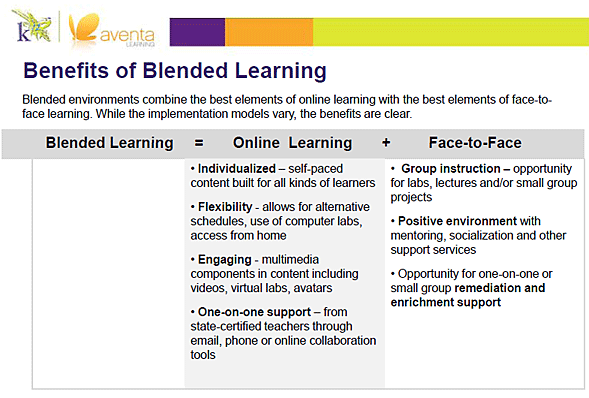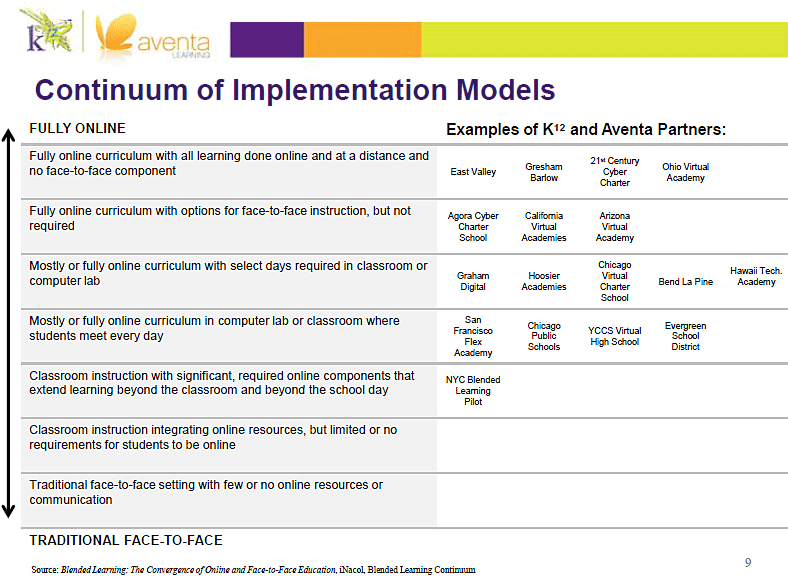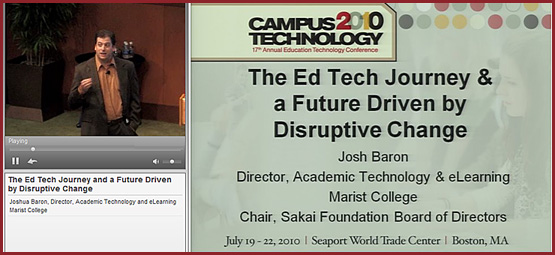— Resource from:
Literacies, Semantic Web and Recommended Resources by Barry Joseph
Just found out about this presentation from September 2008 by the futurist Richard Watson.
Trends mentioned here include:
- Aging population
- Urbanization
- Globalization
- Personalization
- Search for/aspiration for happiness
- Sustainability
- Tribalism
- Anxiety ethics
- Resource shortages
From biotech visionaries growing new body parts, to in vitro meat, from a global sensor web that monitors the health of the earth’s biosphere, to a massive effort to reverse-engineer the human brain, Surviving the Future takes a disquieting and astonishing look at some of science’s most radical new technologies.
The film also takes a hard look at the ‘new normal’ of the climate crisis, as we balance our desire to be environmentally responsible—to ‘do the right thing’—and still participate in the consumer economy that is, for better or worse, the basis of our society.
Surviving the future is an unsettling glimpse into the human psyche right now, as our culture staggers between a fervent belief in futuristic utopian technologies on the one hand, and dreams of apocalyptic planetary payback on the other.
Thought provoking and visually stunning, Surviving the Future looks at the stark and extreme choices facing our species as we prepare ourselves for the most challenging and consequential period in our history.
From DSC:
These are some of the things I was alluding to in my post here…I’d be more comfortable with many of these things if the state of the heart were in better condition.
Musical instruments of the future – Reactable — from David Kusek, VP at Berklee College of Music
There is a lot of innovation happening with electronic music instrument and new interfaces. Reactable is one of the latest in music technology fusing DJ culture, touch screen topography and electro-pop showmanship. Coming to an iPad near you. Reactable says their company “is about the promotion of creativity and the mediation of culture through the application of the latest technologies in human computer interaction, music technology, graphics and computer vision.” Check it out.
.
Proverbs 27:1 (New International Version) — from BibleGateway.com
“Do not boast about tomorrow, for you do not know what a day may bring forth.”
What is a Learning Futurist? — from Teaching College Math by Maria Andersen
So, what is a futurist? First, a futurist does not “predict” the future, they use foresight skills to complement insight and hindsight. One foresight skill is basic forecasting (trend analysis), but this only works if the field under investigation is relatively stable. In unstable fields, futurists use scenario planning to project several possible outcomes – by examining the possibilities, an organization can plan for the most common outcomes, or at least think through some of the planning necessary for extreme possibilities (often, several extreme possibilities have some commonalities). Futurists have to think creatively about the direction and meaning of trends, not just within a field, but in the surrounding fields. You could say that Futurists have to be excellent systems thinkers.
Who does futuring?…
So, what is a Learning Futurist, in particular?…
The OUTLOOK 2011 report from THE FUTURIST magazine examines the key trends in technology, the environment, the economy, international relations, etc., in order to paint a full and credible portrait of our likely future. The magazine has released the top ten forecasts from Outlook 2011, plus more than 300 forecasts from previous reports, on the World Future Society’s Web site.
http://www.wfs.org/Forecasts_From_The_Futurist_Magazine
Here are the top ten forecasts from Outlook 2011:
1. Physicists could become the leading economic forecasters of tomorrow.
Unlike mainstream economists, who rely on averages, econophysicists study complex systems, feedback loops, cascading effects, irrational decision making, and other destabilizing influences, which may help them to foresee economic upheavals.
2. Environmentalists may embrace genetically modified crops as a carbon-reduction technology.
Like nuclear power, genetically modified crops have long been the bane of environmentalists, but Stewart Brand, author of Whole Earth Discipline, argues that there are myriad benefits to them as C02 sinks.
3. Search engines will soon include spoken results, not just text.
Television broadcasts and other recordings could be compiled and converted using programs developed by the Fraunhofer Institute for Intelligent Analysis.
4. Will there be garbage wars in the future?
Trash producers in the developed world will ship much more of their debris to repositories in developing countries. This will inspire protests in the receiving lands. Beyond 2025 or so, the developing countries will close their repositories to foreign waste, forcing producers to develop more waste-to-energy and recycling technologies.
5. The notion of class time as separate from non-class time will vanish.
The Net generation uses technologies both for socializing and for working and learning, so their approach to tasks is less about competing and more about working as teams. In this way, social networking is already facilitating collaborative forms of learning outside of classrooms and beyond formal class schedules.
6. The future is crowded with PhDs.
The number of doctorate degrees awarded in the United States has risen for six straight years, reaching record 48,802 in 2008, according to the National Science Foundation’s Survey of Earned Doctorates. One-third of these degrees (33.1%) went to temporary visa holders, up from 23.3% in 1998.
7. Cities in developed countries could learn sustainability from so-called slums in the developing world.
Dwellers of “slums,” favelas, and ghettos have learned to use and reuse resources and commodities more efficiently than their wealthier counterparts. The neighborhoods are high-density and walkable, mixing commercial and residential areas rather than segregating these functions. In many of these informal cities, participants play a role in communal commercial endeavors such as growing food or raising livestock.
8. Cooperatively owned smart cars and roads will replace dumb, individual gas guzzlers.
With 800 million cars on the planet to serve 7.8 billion people, personal transportation is a dominant force in our lives. But the emergence of car-sharing and bike-sharing schemes in urban areas in both the United States and Europe have established alternative models and markets for fractional or on-demand mobility, says MIT’s Ryan C.C. Chin. He and his fellow engineers with the MIT Media Lab have designed a car system that could serve as a model for future cities.
9. Fighting the global threat of climate change could unite countries— or inflame rivalries.
Nations with more sophisticated environmental monitoring systems could use data to their advantage, perhaps weakening an enemy by failing to warn it of an oncoming storm or other catastrophe. They could also fudge their own, or their rivals’, carbon output numbers to manipulate International legislation says forecaster Roger Howard.
10. We may not be able to move mountains with our minds, but robots will await our mental commands.
Brain-based control of conventional keyboards, allowing individuals to type without physically touching the keys, has been demonstrated at the universities of Wisconsin and Michigan. In the near future, brain e-mailing and tweeting will become far more common, say experts. A group of undergraduates at Northeastern University demonstrated in June that they could steer a robot via thought.
All of these forecasts plus dozens more were included in the report that scanned the best writing and research from THE FUTURIST magazine over the course of the previous year. The 2011 Outlook report was released as part of the November-December 2010 issue of THE FUTURIST magazine, available on October 1, 2010. If you would like to learn more about how you can join the World Future Society to receive your complimentary copy of Outlook 2011, click here.
The Society hopes this report, covering developments in business and economics, demography, energy, the environment, health and medicine, resources, society and values, and technology, will assist its readers in preparing for the challenges and opportunities in the coming decade.
These are just a few of the big issues and uncommon solutions that THE FUTURIST magazine is tracking for you.
In order to continue our coverage of the challenges and opportunities of the twenty-first century, we need your help in 2010 and 2011. We encourage you to forward this free sample along to your friends. If you found this information useful or interesting, we hope you’ll join the World Future Society to receive THE FUTURIST magazine today.
The Ed Tech Journey and a Future Driven by Disruptive Change — from Campus Technology.com by Mary Grush
Teaching and learning in higher ed have advanced incrementally alongside rapid changes in technology. Is it time for some radical shifts?
As the closing keynote speaker at Campus Technology 2010, Josh Baron, director of academic technology and e-learning at Marist College (NY) and chair of the Sakai Foundation board of directors, scanned emerging technologies and trends to identify the future potential for fundamental, revolutionary change in higher education. The following is based on excerpts from his hour-long talk. (A recording of Baron’s keynote is available at campustechnology.com/summer10; click on Recordings. Or click below graphic.)
.
Educational technology trends 2010 — from xplana.com by Rob Reynolds
We present these trends as broader categories and then point to specific topics within each. We will use these trends guidelines for our daily, weekly, and monthly research over the next six months, and will then issue a revised set of trends for the last half of the year.
From DSC:
One of the topics is “Containerless Education” which states:
Today, learning content is still consumed mostly in container formats — books, courses, LMS platforms, classes, and institutions. Increasingly, however, the notion of content is shifting to smaller, autonomous pieces that can be acquired and reconfigured by the end user in ways that are necessarily independent of traditional educational containers. Just as songs have been disaggregated from albums in the music world, educational content in general will be increasingly disaggregated from its containers in the coming year.
…hmmm….sounds like a Learning Ecosystem.









